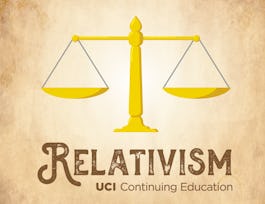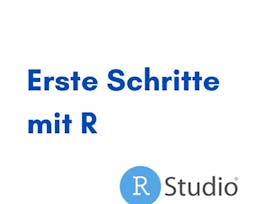For the last four centuries, scientists have aimed to provide us with an understanding of the world around us. By all appearances, science has made substantial progress during this time. But is this progress real or illusory? And if it is real, how has this progress been made? This four-week course will consider these important questions. Specific topics will include how scientists generate knowledge through observations, experiments, and simulations; scientific objectivity and failures of scientific objectivity; the self-correcting nature of the scientific community; the positive and negative influences that values can have on science; the relationship between science and religion; and the role of the public in guiding the scientific enterprise.


Philosophy of Science
Taught in English
Some content may not be translated
18,377 already enrolled
(208 reviews)
Details to know

Add to your LinkedIn profile
4 quizzes
See how employees at top companies are mastering in-demand skills


Earn a career certificate
Add this credential to your LinkedIn profile, resume, or CV
Share it on social media and in your performance review

There are 4 modules in this course
What's included
6 videos2 readings1 quiz1 discussion prompt
What's included
11 videos1 reading1 quiz1 discussion prompt
What's included
6 videos1 reading1 quiz1 discussion prompt
What's included
4 videos1 reading1 quiz1 peer review1 discussion prompt
Instructor

Offered by
Recommended if you're interested in Philosophy

The University of Edinburgh

Coursera Project Network

University of California, Irvine

Coursera Project Network
Why people choose Coursera for their career




Learner reviews
Showing 3 of 208
208 reviews
- 5 stars
79.32%
- 4 stars
13.94%
- 3 stars
3.36%
- 2 stars
0.96%
- 1 star
2.40%

Open new doors with Coursera Plus
Unlimited access to 7,000+ world-class courses, hands-on projects, and job-ready certificate programs - all included in your subscription
Advance your career with an online degree
Earn a degree from world-class universities - 100% online
Join over 3,400 global companies that choose Coursera for Business
Upskill your employees to excel in the digital economy
Frequently asked questions
Access to lectures and assignments depends on your type of enrollment. If you take a course in audit mode, you will be able to see most course materials for free. To access graded assignments and to earn a Certificate, you will need to purchase the Certificate experience, during or after your audit. If you don't see the audit option:
The course may not offer an audit option. You can try a Free Trial instead, or apply for Financial Aid.
The course may offer 'Full Course, No Certificate' instead. This option lets you see all course materials, submit required assessments, and get a final grade. This also means that you will not be able to purchase a Certificate experience.
When you purchase a Certificate you get access to all course materials, including graded assignments. Upon completing the course, your electronic Certificate will be added to your Accomplishments page - from there, you can print your Certificate or add it to your LinkedIn profile. If you only want to read and view the course content, you can audit the course for free.
You will be eligible for a full refund until two weeks after your payment date, or (for courses that have just launched) until two weeks after the first session of the course begins, whichever is later. You cannot receive a refund once you’ve earned a Course Certificate, even if you complete the course within the two-week refund period. See our full refund policy.


